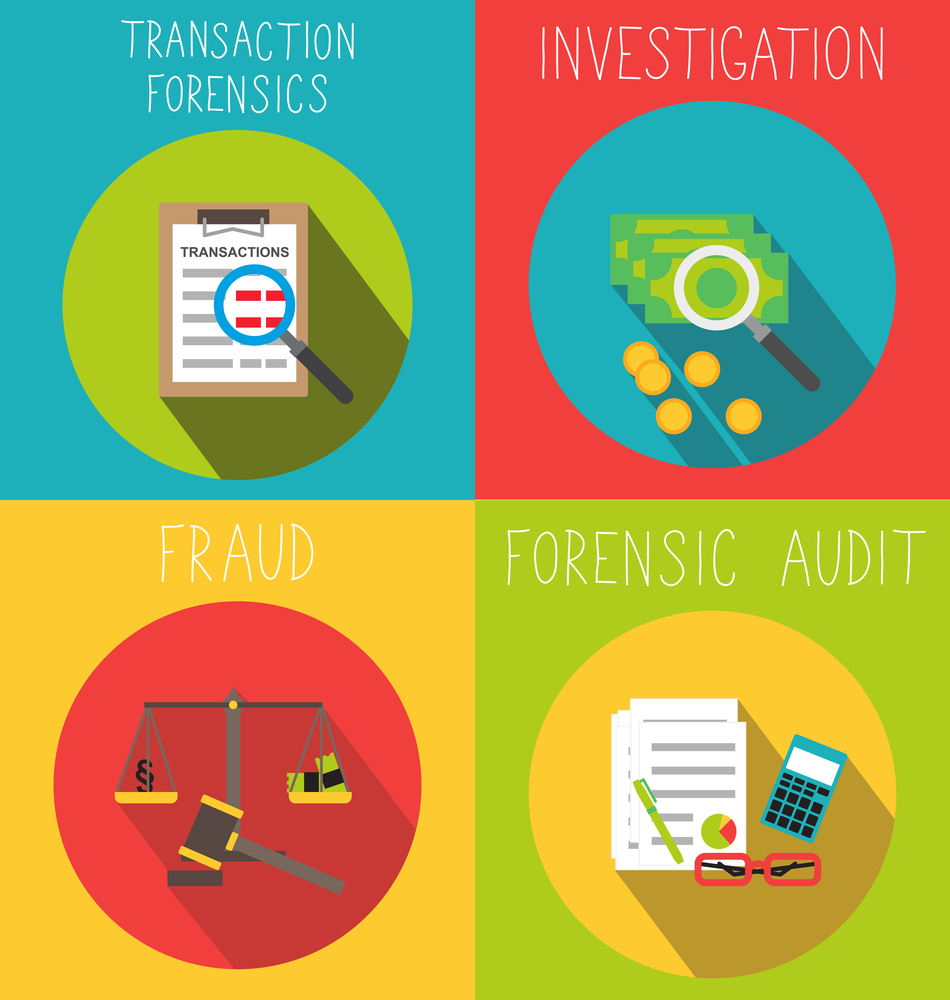For better or worse, there’s never been a better time to be a forensic accountant. In recent history, financial scandals like the Madoff Ponzi scheme, Lehman Brother’s falsified loans and the Samsung bribery case, have shown the importance of trained, experienced financial investigators.
In the era of globalisation, Big Data, and deregulation, there’s a lot of temptation to make a fast buck or take advantage of consumer trust for a bigger payday. To fight corruption and keep markets fair, there is an ever-growing need for forensic accountants who can find, analyse, and communicate fraud and deception to the authorities and to the public.

However, it’s not all fraud and deception. Granted, that’s the exciting stuff, but forensic accountants have a role in all sorts of financial, business, and legal settings. Forensic accountants help investors do their due diligence, analysing deals to suss out potential fraud. They investigate bankruptcies, mergers, and acquisitions, to make sure all parties involved are showing their cards. Forensic accountants help law firms in divorce cases, dragging out any financial skeletons in the closet, and they work in insurance companies verifying whether claims are legitimate and how much loss the company will take on certain clients.
FORENSIC ACCOUNTANT JOB DESCRIPTION
Every financial audit or investigation is going to have its unique wrinkles, because there’s no such thing as a textbook crime. But the work of forensic accounting is fairly standardised. Forensic accountants go through a three-step process:
- Discovery – Finding the evidence when there’s a suspicion of wrongdoing.
- Analysis – Examining the evidence to figure out who did what to whom and how. (It’s always the butler.)
- Report – This is where the storytelling comes in – laying out the evidence for clarity, and explaining every aspect of the case in detail.
The responsibilities of a forensic accountant include preparing their findings with the understanding that their research will probably be used in court, either in a civil suit or a criminal prosecution.
A forensic accountant will provide litigation support, and this can entail calculating the economic damage, for example, when somebody violates a written contract. This can involve assignments related to insurance or securities fraud, wrongdoing related to kickbacks, employee theft, and more.
A forensic accountant will need to possess auditing skills to conduct in-depth examinations of complex financial records and accounts, and he or she must be available to communicate with other members of the legal investigations team to keep them up to date as developments occur. A major part of the forensic accountant job description is the ability to effectively convey financial information in a manner that is appropriate for a court setting.
HOW FORENSIC ACCOUNTANTS DO THEIR SLEUTHING
Forensic accountants must be knowledgeable with various computer software programs, including Microsoft Word, Excel, and PowerPoint, for the purposes of gathering and analyzing information. Job candidates will need to learn online researching skills and the use of database management and analytical software.
Ethics will play a large role in forensic accounting, and professionals will need to display a high level of personal integrity to conduct their work in a thoroughly honest manner. Forensic accountants will also need to be able to successfully pass a background check, as many jobs will require a security clearance. Take down any embarrassing Facebook pictures right now.
In addition, forensic accountants must be team players, as they are likely to work in environments where they must collaborate with other professionals. They will be responsible for reviewing damage reports from the opposing experts to discover the strengths and weaknesses of their presented case, and they will give consultation to decision makers to best decide how financial reparations should be made.
To keep their certifications, forensic accountants will need continuing education credits in the form of conferences and workshops, and most employers will also stage periodic training sessions to help them stay up to date in their field. As newer technologies emerge, forensic accountants must learn how to use them, and they should read periodicals and studies to keep abreast of the latest developments in their line of work.
FORENSICS ACCOUNTING SALARY EXPECTATIONS
Forensics accounting salary statistics show that people working in this profession can earn between ₹12,00,000 to ₹30,00,000 per Annum as their compensation. The median income for forensic accountants is between ₹ 15,00,000 to 18,00,000. These figures can be influenced by a number of factors like whether the forensic accountant works on a freelance basis from own practice or whether for an employer. Whether the professional is a Qualified Chartered Accountant with multiple certification etc…
Forensic accountants can find employment working in law enforcement, insurance companies, and government agencies. Obviously, there are forensic accounting jobs in banks, financial institutions, and investment firms as well. The highest-paid jobs are generally found working for Big fours in India and for the Captive Shared Service Units after forensic accountants have advanced to higher levels of upper management.
This field is expected to grow by 10% to 18% between 2019 and 2024, according to the multiple stats and studies. This is different than the field of general accounting and its not mandatory to be a Practising Accountant to get into this profession. People who already have degrees in accounting can easily qualify for a higher wage by completing the coursework to receive their financial forensics credentials.



